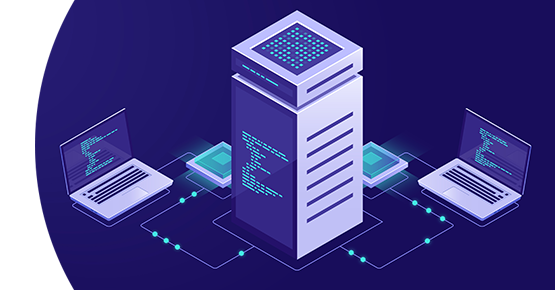Advanced Big Data Analytics
Gain insights into data and programming with the 'Advanced Big Data Analytics' program, a blend of Python, Big data, and Pyspark, and acquire flair skills in coding.
MenuDuration
270 Days
Mode
Online
Job Guarantee
100%
No Cost EMI Starts
at 4000/month*
About Program
Processing an immense amount of data and providing insights through analysis is laborious. To mitigate the complexity of data analysis, there is a need for algorithms, programming, and advanced techniques to examine the data. By using the most accepted prescriptive analytics, data scientists and other analytics in businesses can find new avenues. Our program paves the way for achieving your ideal job in your dream company. We make you understand the in-depth science behind computing and its components along with the integration. Avail of hands-on experience, expertise in technological tools, and seek career progression.
Also, believing in the statement, "Good communication skills are a step towards building a great career", our job guarantee program additionally offers aspirants with "Soft Skills" course. This course aids learners in getting placed in their dream companies.
Program Highlights
 Engaging E-learning platform.
Engaging E-learning platform.
 Valued certification.
Valued certification.
 Specially designed curriculum.
Specially designed curriculum.
 Top-notch experts.
Top-notch experts.
 100% job guarantee.
100% job guarantee.
 Prestigious institutional collaborations.
Prestigious institutional collaborations.
 One-to-One student guidance support.
One-to-One student guidance support.
 Timely assistance throughout the program.
Timely assistance throughout the program.
 Learning at your own pace.
Learning at your own pace.
 Easy & convenient learning style.
Easy & convenient learning style.
 Hassle-free access to the program.
Hassle-free access to the program.
 Webinar.
Webinar.
Who is this program for?
Irrespective of the stream, Edifypath welcomes all the learners who can see the future in the programming world.
Engineering students who are pursuing their graduation / post-graduation (any stream).
Freshers, Tech Enthusiasts who see a future in the programming world.
Professionals who are looking for a career transition in the field of Data analytics.
Technical and non-technical domain experts who are enthusiastic about learning.
Because of the vast scope, Advanced Big Data Analytics is expected to be the most prominent industry in the coming generations.
Program Objectives
Advanced Big Data Analytics program incorporates advanced techniques that help learners to achieve proficiency in programming.
Empowers learners to make careers in fast-paced areas such as AI/ML, NLP, and API programming.
Provides exploratory data analysis and feature engineering at scale.
Enables learners to gain hands-on experience on scalable implementations of standard machine learning algorithms.
Facilitates the knowledge of the practical implementation of data lakes that helps in seeking new business opportunities.
Defines the integrated process of how various ecosystem components are utilized independently to bring out desired results.
Program Curriculum
- Session-1: Python Introduction
- Session-2: Python Syntaxes, Variables and Reserved Keywords
- Session-3: Python Data Types
- Session-4: Operators in Python
- Session-5: Strings in Python
- Session-6: Python Collections (List, Tuple, Set, Dictionary)
- Session-7: Lists
- Session-8: Tuples
- Session-9: Set
- Session-10: Dictionary
- Session-11: Sorted Function on Collection Data Types
- Session-12: Copy Collections (Hard Copy, Shallow Copy, Deep Copy)
- Assessment-1
- Session-1: Pass, Control Statements
- Session-2: Looping Statements (for-loop, while-loop, break, continue, for-loop-else clause)
- Assessment-2
- Session-1: Function Definition, Types of Functions, Calling Functions
- Session-2: User Defined Functions (based on Parameters)
- Session-3: Recursive Functions
- Session-4: Lambda Functions
- Session-5: Map, Filter, Reduce Functions
- Session-6: Closure Functions
- Assessment-3
- Session-1: What are Modules, Built-In & User Defined Modules, Advantages
- Session-2: What are Packages, Built-In & User Defined Packages
- Assessment-4
- Session-1: What are Exceptions, How to Handle Exceptions using try-except-finally
- Assessment-5
- Session-1: Introduction to OOPs, Principles, Encapsulation, Concepts, Terminologies
- Session-2: Working with Classes, Objects, Instances, Static & Non-Static variables
- Session-3: Constructors, Destructors, Dunders
- Session-4: Exception Handling in OOPs, Assertions
- Session-5: Types of Inheritances in OOPs, Polymorphism, Abstraction
- Assessment-6
- Session-1: Introduction to Databases, DBMS, RDBMS
- Session-2: DB CRUD operations, Data Transfer, DB Exceptions Handling
- Assessment-7
- Session-1: Introduction to Files concepts, File Handling in Python, Access Modes
- Session-2: Reading & Writing Data, Additional File Methods
- Session-3: Working with CSV Files
- Session-4: Working with XML Files
- Session-5: Working with JSON Files
- Session-6: Exception Handling in Files
- Session-7: Working with Files in Directories
- Session-8: Files Synchronization using Pickle methods
- Assessment-8
- Session-1: Introduction to Regular Expressions, Pattern building Literals & Strings, Greedy Match
- Session-2: Regular Expressions Functions
- Session-3: Live Web Scraping using Regular Expression
- Assessment-9
- Session-1: What is Multi-Threading, Multi-Threading with Functions & Classes
- Assessment-10
- Session-1: What is Logging, Advantages
- Session-2: Steps to implement Logging
- Assessment-11
- Session-1: What is Unit Testing, Test Case, Scenario, Suite
- Session-2: Hands-on using ‘unittest’ built-in library
- Session-3: Hands-on using ‘pytest’ external library
- Assessment-12
- Data Need, Storage Reqts, Info. and its imp., Events and rec., Manual and Auto. Sys for Data Mgmt.
- Comp. sys for data mgmt., Intro to RDBMS, Normalization, CRUD Ops, DW and BI, EDS and Data Lake
- Mini Project-1
- Assessment-1
- Intro to OS and Unix and it's functionalities, Unix installation and login to command line
- Unix file system and its fundamentals, Command classification, Introduction to pipe and filters
- Command practice ls, mkdir, rmdir, cat, touch, cd, standard input, output, error devices
- File commands, Authentication and Authorization, Unix user types and file/directory permissions
- Absolute and Relative paths, Wild cards and their usage in commands and Working with Filters
- Mini Project-2
- Assessment-2
- SQL and RDBMS intro, Installing MySQL, SQL Commands, Working with DB, tables and data types
- Data de-duplication, Creating tables with relationships and Loading data into tables
- Data retrieval from multiple tables, Joining, row filtering and altering tables
- Grouping and aggregation and MySQL functions
- Exercises, inserting data into tables and loading data into tables
- Exercises, selecting data using sub queries and practicing joining and other clauses
- Exercices
- Mini project-3
- Assessment-3
- Document-1
- Introduction to Analytics, and Descriptive Analytics
- Modern age analytics with ex-Storage Processing needs-BigData Challenges,Soldeveloped,comparisio
- Analytics Journey, Data Formats, Processing unstructured data, Data Evolution, BigData Limitations
- Modern Data, BigData, Hadoop, and it’s architecture - HDFS
- Hadoop YARN, Installing Hadoop
- Enterprise Hadoop Architecture, Hadoop and Ecosystem, End user view
- Understanding HDFS Commands
- Mini Project 4
- Assessment-4
- Apache Hive and Hive QL - Part 1
- Practice Assignment 1
- Apache Hive and Hive QL Overview - Part 2
- Practice Assignment 2
- Apache Hive and Hive QL Overview - Part 3
- Practice Assignment 3
- Hive Bucketing, Transactional tables, Managed Vs External tables in Hive
- Mini Project 5
- Assessment-5
- Document-2
- Introduction, Installation, File Formations and Query Evaluation
- Data Importing using Apache Sqoop, Performance, Incremental Import, Using different file formats
- Working with Hive Import, related options and their usage
- Mini Project 6
- Assessment-6
- Document-3
- An Introduction to NoSQL DB Systems, ACID and CAP Theorems that govern data management
- Various NoSQL DBs available, Classification and their features
- Installing HBase, Introduction to HBase, Architecture, Comparisons
- Understanding HBase Data Model, Rows, Column Families, Columns, TimeStamp, RowKey etc.
- Views of HBase Table, Working HBase, Starting Cmd Line Shell, Creating Table, Adding Rows – Put Cmd
- Reading Rows (get and scan commands), Counting records, Deleting cells, columns and rows
- Modifying column families, disabling, adding, and deleting columns families
- HBase and Hive Integration, Major and Minor Compactions
- Mini Project-7
- Assessment-7
- Intro to Apache Flume, Understanding Features and Configuration
- Setup Agent, Agent configuration for Hadoop HDFS and Logging from Console
- Agent configuration for Twitter, Complex configurations, supported sources, channels and sinks
- Mini Project-8
- Assessment-8
- An introduction to Apache Pig, Features, Applications, and Installation
- Pig Architecture, Working modes, Case sensitivity and Basic Commands
- Loading Data, Fields using Position, Naming, Specifying Data types – Schema
- Understanding Data Types, Load Store Functions, Different File formats and Filtering records
- Functions, Split, Group by, Ranking, Distinct operation, etc.
- Mini Project-9
- Assessment-9
- Document-4
- Need For Distributed Computing
- Assessment of Need For Distributed Computing
- Timeline – Big Data Evolution
- Assessment of Big Data Evolution
- Apache Spark – Distributed Execution
- Assessment of Distributed Execution
- Apache Spark – Data Abstractions
- Assessment of Data Abstractions
- Introduction to Databricks
- Assessment of Introduction to Databricks
- Creation of Databricks Community Account
- Assessment of Creation of Databricks Community Account
- Databricks Workspace
- Databricks File System (DBFS)
- Managing Databricks Notebooks - 1
- Managing Databricks Notebooks - 2
- Spark SQL – 1
- Spark SQL – 2
- Spark SQL – 3
- Spark SQL – 4
- Spark SQL – 5
- Spark SQL – 6
- Spark SQL – 7
- Spark SQL – 8
- Assessment of Spark SQL Module
- Create DataFrames - 1
- Create DataFrames - 2
- Create DataFrames - 3
- Save DataFrames To Flat Files
- Basic Operations on DataFrames
- Advance Operations on DataFrames - 1
- Assessment of Spark Data Frames Module
- M-5,S-7
- M-5,S-8
- M-5,S-9
- Exploratory Data Analysis | Session-1
- Exploratory Data Analysis | Session-2
- Exploratory Data Analysis | Session-3
- What is Communication? The Process of Communication
- Barriers in Communication & How to overcome
- Behavioral Communication Styles
- Basics on Assertive Communication
- How to say No
- Active Listening Skills
- Questioning Skills
- Communication Techniques
- Body Language
- Email Composition and Etiquette
- Email Scenarios
- Accountability & Ownership
- Building Credibility and Rapport
- Being Proactive
- Being Empathetic
- Collaboration and Teamwork
- Dealing with Difficult People
- Introduction to Business Etiquette
- First Impression
- Meeting Etiquette
- Professional Behaviour
- Telephone Etiquette
- Multi-Cultural Etiquette
- Developing Confidence
- Being Self-organized, Independent and Disciplined
- Attitude At Work
- Personal SWOT Analysis
- Time Management Introduction
- Goal Setting
- Creating A To-Do List
- Personal SWOT Analysis
- Essential Elements of making a presentation
- Basic Presentation Flow
- Preparing for a presentation
- Delivering a good presentation
- Introduction to Emotional Intelligence
- How to develop EQ
- IQ vs EQ
- Flexibility & Adaptability
- Attention to Details
- Ethics and Integrity(Professionalism)
- Work Ethics
- Continuous Learning (Self Help)
- Customers and their expectations
- Communication = customer care
- Dealing with difficult customers
- Listen and learn
- Right attitude and Skills
- Assessment
Program Benefits
1. Guaranteed first-class internship opportunities.
2. Exceptional training methods by top-notch industrial experts.
3. Practical exposure by taking on a real-time journey.
4. Potential hands-on learning to gear up for day-to-day challenges.
5. Renowned certification from esteemed institutions.
6. 100% job assurance.

Meet Your Mentors

Bala Krishna Mamidi
Python
Bala is a Python and Machine Learning expert and holds M.Tech from NIT, Allahabad (Prayagraj, Uttar Pradesh). With over a decade and a half of experience in the IT industry, he has been a Developer, Trainer, Mentor, and Solutions Provider using technologies such as Artificial Intelligence, Machine Learning, and Big Data Analytics with Python for various domains including IT, Education, Telecom, Manufacturing, Health care, Messaging Applications, etc. He is a Python & AI/ML Subject Matter Expert and a passionate tech trainer who has been training for working professionals, and especially students, graduates, and enthusiasts bridging the gap between Academics, Learning Industry, and IT/non-IT Industries, helping them quickly land into their dream jobs and make career advancements.

Rama Kumar Prabhala
Big Data
Rama Kumar is a specialized trainer turned software architect in Big Data technologies and holds an MCA from Vinayaka Missions University, TN, and M.Sc in Applied Physics from Rani Vishwavidyalaya, Jabalpur, MP. He is recognized as one of the best trainers in the industry and facilitates training for professionals from various countries. He is actively engaged in architecture and developing migration tools for data migration projects for an MNC currently.

Vijay Gowtham Reddy
PySpark
Vijay is a Data Science Associate Architect and holds a B.Tech from Amrita University, Bangalore. With an overall experience of a decade in the IT industry, he has implemented advanced analytics projects in the areas of Machine Learning, Natural Language Processing, and Computer Vision. He also leads the AIML Lab and focuses on leveraging an open-source tech stack to build cost-effective tools which accelerate the data science project implementations. He is adept at identifying opportunities to extract value from datasets and solve focused analytical problems to produce innovative solutions. His experience ranges across various domains like Insurance, Telecom, Retail, and Public Sector.
Program Fee
©️ 2024 Edify Educational Services Pvt. Ltd. All rights reserved. | The logos used are the trademarks of respective universities and institutions.


